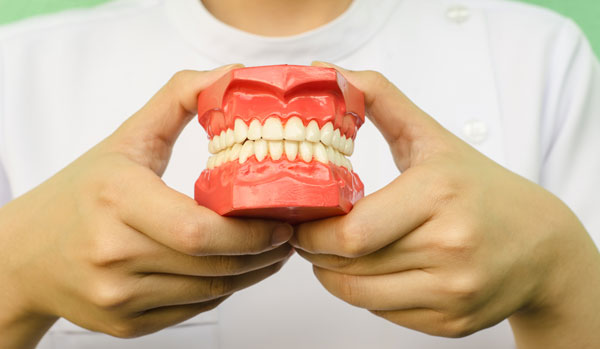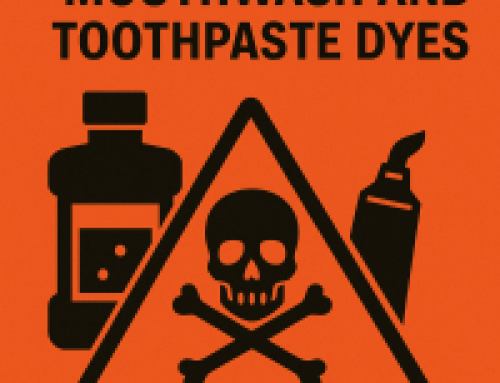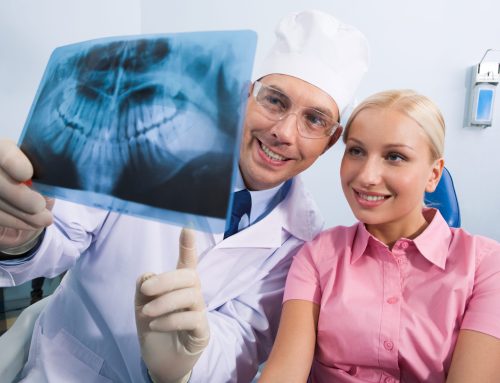Did you know that 35 million American adults have lost all their teeth (4) and that adult Americans, aged 20 – 64, have an average of only 24.9 of their original 32 teeth left (3). However, four of the 32, the “wisdom teeth,” are sometimes extracted to prevent overcrowding, leaving most adults with 28 (2). Doing the math means most adult Americans have lost, on average, about three teeth.
Why Do We Need Teeth?
Most people take teeth for granted, never considering how important they are, until something happens to make us realize how much we depend on them. Of course, we need them for chewing food. That’s a given. Digestion begins in the mouth, so having the requisite number and types of teeth to bite and chew is important, but enjoying the food also depends on teeth. For instance, how does one enjoy a piece of toast for breakfast if the incisors are loose or missing?
We also need them for aesthetics and as foundation for facial structure. When they are gone, the face can appear sunken. That affects the way people perceive us. Humans are naturally drawn to healthy-looking people with beautiful smiles.
We use them when we produce language. Tooth loss can result in speech impediment (1). Some sounds we make include the use of the teeth to make that sound. For instance, say “the,” “for,” and “vacuum” and note how difficult it would be to produce those sounds – th, f, and v – without the teeth.
Tooth Loss Affects Overall Health
Tooth loss affects physical health. Reduced nutrition occurs as a result of improper mastication of food and may cause the sufferer to avoid some foods altogether (4).
Tooth loss also affects mental health. If you have missing teeth, your face appears sunken, or you have a speech impediment, the result could be self-consciousness, which could lead to withdrawing from social interaction, then leading to isolation and potentially depression (4). If you cannot enjoy food, that affects mental well-being, and thus mental health as well.
Tooth loss in one area weakens teeth in other areas. It causes teeth that are present to realign, but additionally, it puts more stress on remaining teeth, thus contributing to even more risk of additional wearing and further loss.
Tooth Loss: What’s the Risk?
The National Health and Nutrition Examination Survey 1999-2004 established at-risk factors. At greater risk are older adults, Black and Hispanic adults, current smokers, people with lower incomes and education, and the lower the income and education, the greater the risk (3).
How Great Is Your Risk for Tooth Loss?
Since healthy gums hold teeth in place, ask your dentist how many 4mm “pockets” you have. More than 6 is a symptom of periodontal disease. Clean Kiss theraputic mouthwash and toothpaste is money back guaranteed to reduce pocket depth when used twice daily as directed. Get both at cleankiss.com/shop and if this is your first order with us, use firstkiss coupon for free shipping. Already love us? Get Free shipping when you subscribe for 3 month autoship.
While you have your dentist on the phone, ask what your level of bone loss is. If it is moderate or severe, you may benefit from Osteo Therapy+. Bone rarely grows back, so bone loss may cause dental implant failure. Pharmaceutical grade Osteo Therapy+ may protect further bone loss. It also supports bone health throughout the entire body. Get it at cleankiss.com/shop.
Our oral probiotic is the only probiotic for oral health. Before bedtime, after using our Swish mouthwash and toothpaste, let the probiotic tablet dissolve in your mouth. As you sleep, your mouth will be flooded with beneficial bacteria that crowd out destructive bacteria. Whiter teeth is a nice side affect as well. Get it also at http://cleankiss.com/shop
Let us know how our products work for you at our cleankissoralhealth facebook page.
References 1. “Causes and consequences of tooth loss.” (24 July 2009). Retrieved May 28, 2020, from https://www.studiodentaire.com/articles/en/causes-consequences-of-tooth-loss.php
2. Nowak, S. “How many teeth do humans have? Adults & kids.” (25 February 2020). Retrieved May 28, 2020, from https://www.authoritydental.org/how-many-teeth-do-humans-have
3. “Tooth loss in adults (Age 20 to 64).” (July 2018). Retrieved May 28, 2020, from https://www.nidcr.nih.gov/research/data-statistics/tooth-loss/adults
4. “What are the long-term effects of tooth loss? “ (5 December 2014). Retrieved on May 28, 2020, from https://www.cadentalgroup.com/long-term-effects-tooth-loss/erio Risk Assessment.






Leave A Comment